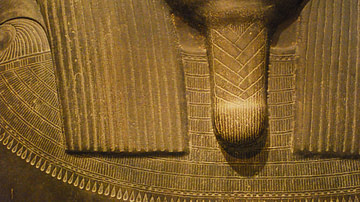Search
Search Results

Article
Charles A. Eastman on Crazy Horse
Charles A. Eastman's biography of Crazy Horse (l. c. 1840-1877) is among the most significant sources on the great Sioux war chief, as Eastman drew on accounts of those who had known and fought alongside him in writing it. The work differs...

Article
The Boy Who Was Sacrificed
The Boy Who Was Sacrificed is a legend of the Pawnee nation highlighting the belief that everything happens for a reason according to the will of Ti-ra'wa ("Father Above"), the supreme creator, and how even the smallest creatures have an...

Definition
League of Nations
The League of Nations was founded in January 1920 to promote world peace and welfare. Created by the Treaty of Versailles, which formally ended the First World War (1914-18), the League provided a forum where nations promised to resolve international...

Definition
Bartolomé de Las Casas
Bartolomé de Las Casas (1484-1566) was a Spanish Dominican friar and former conquistador who revealed the atrocities of the conquests of New Spain and Peru and who strove to protect the basic rights of indigenous peoples in the Spanish Empire...

Definition
House of Burgesses
The House of Burgesses (1619-1776 CE) was the first English representative government in North America, established in July 1619 CE, for the purpose of passing laws and maintaining order in the Jamestown Colony of Virginia and the other settlements...

Definition
Charles VI of France - The Mad King
Charles VI (lived 1368-1422) reigned as King of France from 1380 to 1422, during an important phase of the Hundred Years' War (1337-1453) against England. Known as the 'Mad King' due to his frequent bouts with psychosis, Charles often had...

Definition
Edward VI of England
Edward VI of England reigned as king from 1547 to 1553 CE. Succeeding his father Henry VIII of England (r. 1509-1547 CE), Edward was only nine years old at the time and so the kingdom was ruled by a council of nobles, foremost among whom...

Definition
Phoenician Government
The governments of such Phoenician cities as Tyre, Sidon, and Byblos were led by hereditary monarchs throughout their history. Those individual cities typically acted autonomously from each other and only rarely did they form mutual alliances...

Definition
St. Bartholomew's Day Massacre
The St. Bartholomew's Day Massacre was a widespread slaughter of French Protestants (Huguenots) by Catholics beginning on 24 August 1572 and lasting over two months, resulting in the deaths of between 5,000 and 25,000 people. It began in...

Definition
William the Silent
William the Silent (l. 1533-1584, also known as William of Orange) was the leader of the Dutch Revolt (the Eighty Years' War) in the Netherlands; first politically (between 1559-1568) then militarily (between 1568-1584). He is among the most...